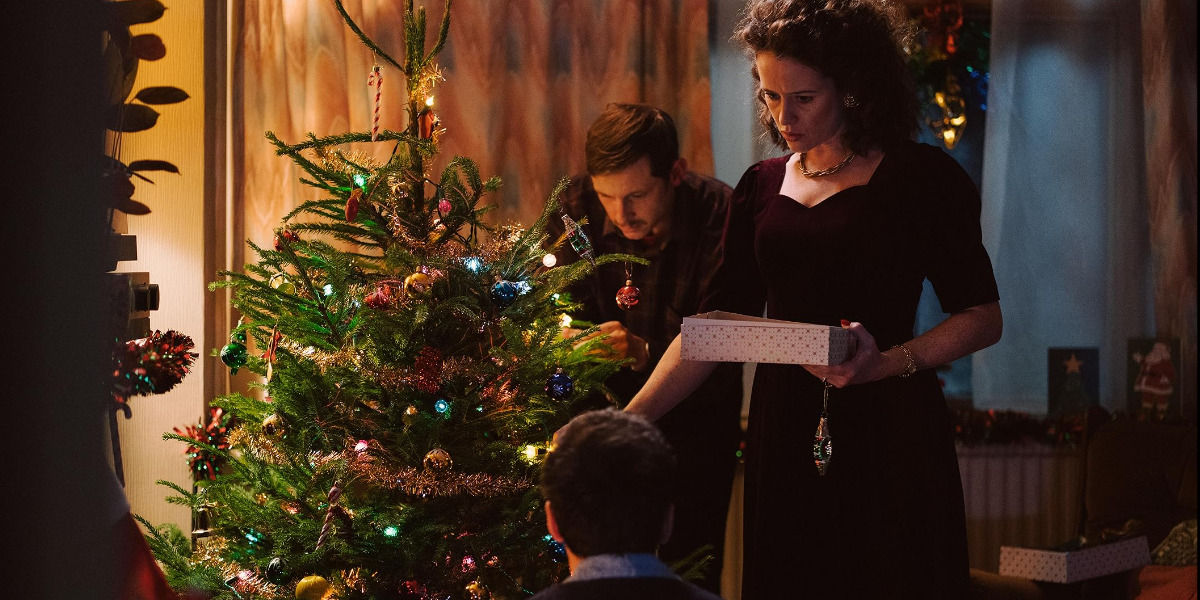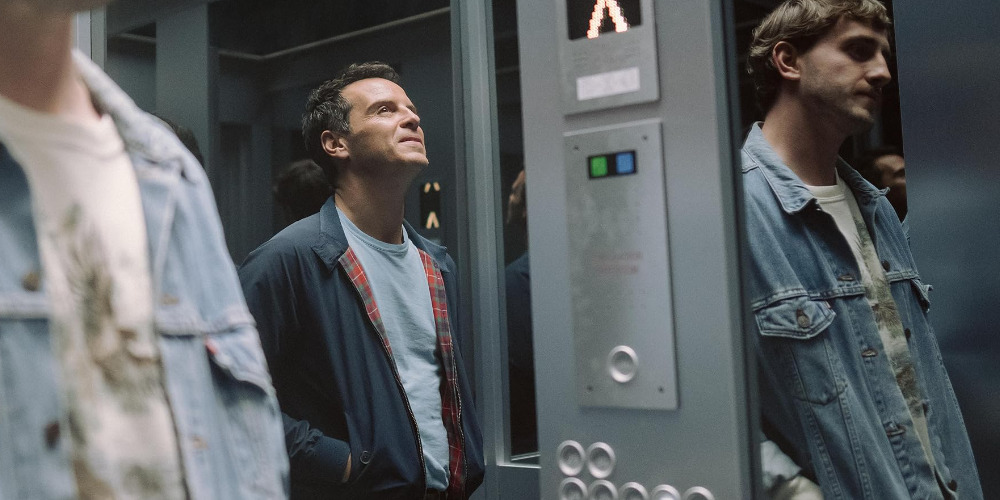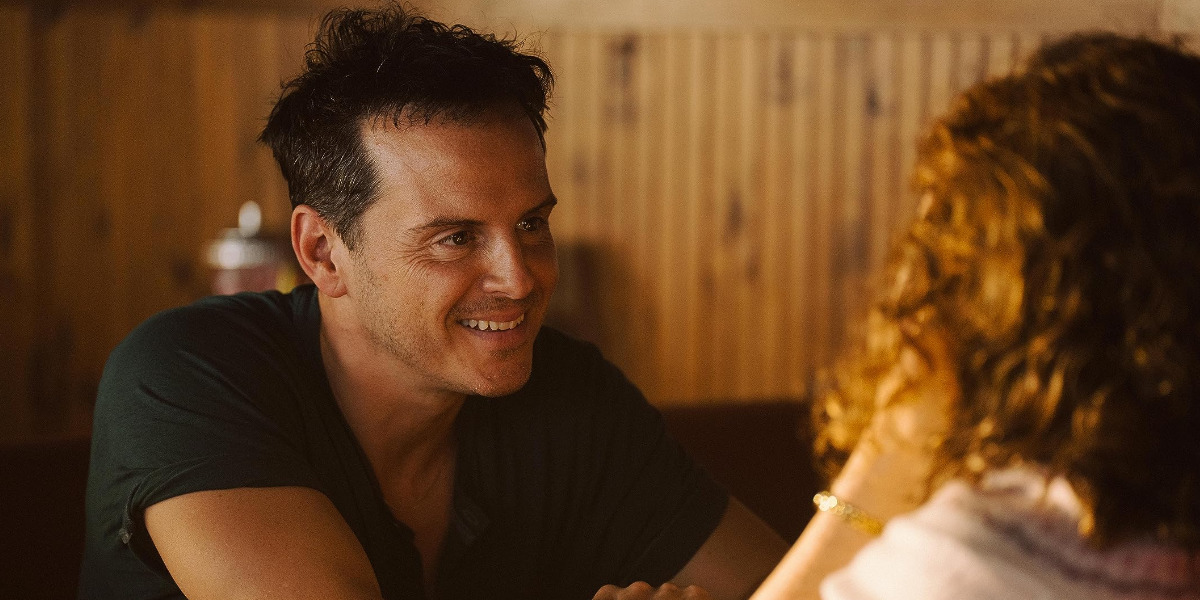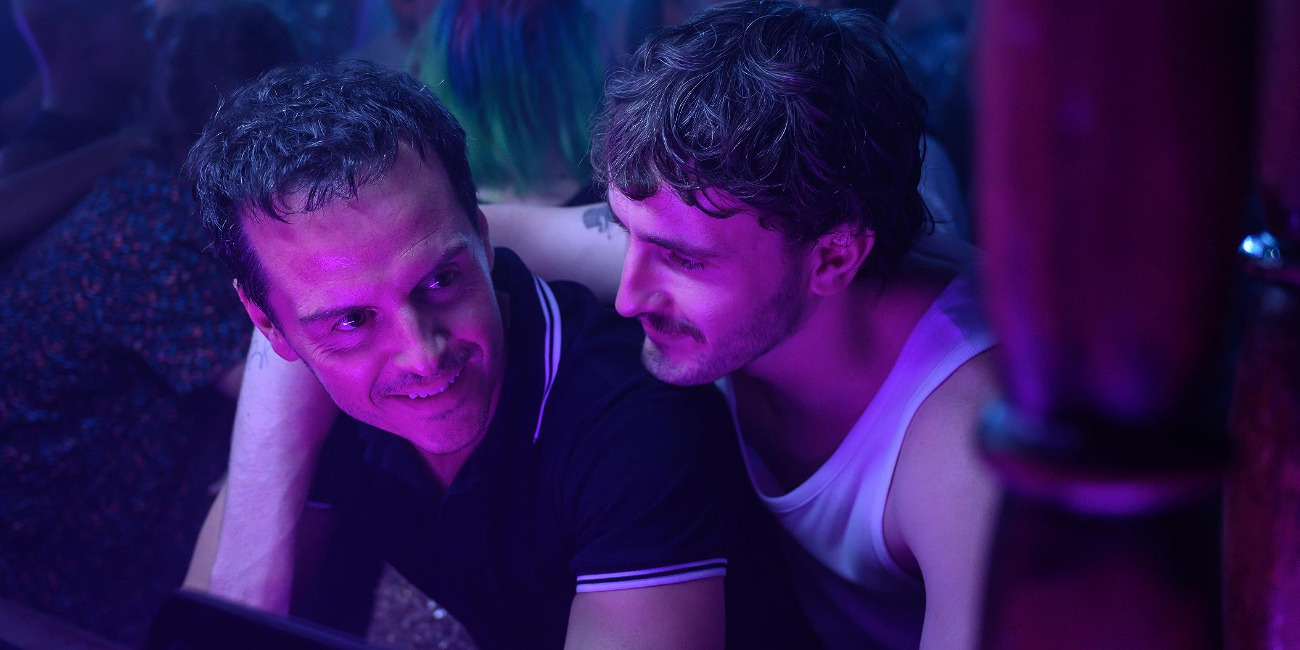In ‘All of Us Strangers,’ Andrew Haigh tells the story of love in two distinct but intricately connected forms. A middle-aged screenwriter, Adam, stumbles into a budding romance with the enigmatically mysterious Harry, his neighbor in a sparsely populated apartment complex. As the delicate relationship grows, nestling itself into the grooves of the writer’s life, it compels Adam to reminisce about his past. Thus, the man finds himself returning to his childhood suburban house, where, much to his surprise, his parents seem to still hold residence — the same parents who died 30 years ago in a tragic car accident.
The film, which charts a metaphysical story about a man who lost his parents only to find another opportunity to know them as an adult, is ripe with raw emotionality as it circles around a poignant time in Adam’s life. Therefore, considering the sheer authenticity behind Adam’s relationships — both with his partner, Harry, and his almost-ghost-like parents — the film compels the viewers to wonder if it has any basis in a true story.
Strangers, a Taichi Yamada Novel
‘All of Us Strangers’ is not based on a true story but has rich origins behind it. At first glance, the film can easily be identified as a partial adaptation of Taichi Yamada’s 1987 novel, simply titled, ‘Strangers.’ The book, originally written in Japanese and later translated into English by Wayne P. Lammers, presents a story similar in narrative beats and thematic resonance to Haigh’s film. It follows the literary protagonist, Hideo Harada, a divorced workaholic who runs into a couple with a striking resemblance to his parents and forms a friendship with them.

The novel slowly builds upon the mysterious apparition of Harada’s long-dead parents. As such, it delves into the eccentric but self-indulgent fantasy of the man who gets to relive alongside his parents, but this time as an adult. The premise, in particular, though bizarre and outlandish, remains incredibly relatable to almost every individual across the globe. The idea certainly captivated Filmmaker Haigh, with the book inspiring him to write the screenplay for what went on to become ‘All of Us Strangers.’ “Just being able to have a conversation with them as equals at a certain time, that was so fascinating to me,” said Haigh, who directed and wrote the film.
Haigh further stated, “And I couldn’t help but think that everybody would want to have that conversation with their parents if they could.” However, in his rendition of the story, Haigh added one detail that distinguishes the film from the novel while also defining the former’s narrative in a substantial way: the central queer romance between Adam and Harry. “It [The film] is about a gay relationship, and I’m not embarrassed about that or making any qualms about that,” shared the filmmaker in a conversation with IndieWire. “It was important that that felt really authentic at the same time, but still tell something wider.”
Andrew Haigh and Andrew Scott’s Personal Connections With The Film
When it comes to Adam’s story, Andrew Haigh infused a lot of his own personal experiences and emotions into the character and his plot progression. From using his own childhood home as the backdrop for Adam’s inexplicable meetings with his undead parents to the character living with the soundtrack of the filmmaker’s youth, Haigh employed every personal resource at hand to ensure the utmost emotional authenticity within his film. Consequently, the same resulted in an inherently autobiographical, but not quite, relationship between the artist and his art.

The most fitting instance of Adam’s story paralleling Haigh’s real life comes from the pivotal moment in the former’s narrative, wherein he finds himself facing his father, as young as he was 30 years ago, as Adam is given the opportunity to come out to him. The night before this scene was shot, Haigh underwent a similarly daunting conversation with his own father. “My dad went through a decline into dementia as I was writing and making the film,” Haigh shared with Esquire. “He has a memory of me, but he asked me if I had a wife. I suddenly felt like I was young again, about to have to come out to my dad.”
As such, while Adam’s story remains fictional without necessarily sharing a basis in Haigh’s real life, there’s an undeniable connection between the two. Similarly, Actor Andrew Scott, who helms the story as Adam, the lead character, also found intricate points of relatability between himself and his on-screen character. “He [Scott] was like, oh my God, you’ve written a script about me,” said Haigh.
Since the film is set in contemporary times, Adam’s character grew up in the same era as Haigh and Scott, who are close in age as each other. Therefore, all three of these individuals grew up in the 80s, the time of the AIDS crisis, when homophobia ran rampant in society. As such, Haigh and Scott understood Adam’s experience in an incredibly intimate way, each personally familiar with the same sort of pain.
“The world might’ve forgotten how we were treated, but we haven’t forgotten how we were treated and how we felt,” the filmmaker said. Therefore, in crafting Adam’s character, both Haigh and Scott saw themselves in his experiences and brought a unique realism to his character.
An Entirely Universal Premise
Although Adam’s queer identity and relationship with Harry form immensely significant cornerstones of the film, the story’s execution remains universally relatable. Adam’s storyline, wherein he reconnects with his parents in an impossible way, where they’re the same adults he kept himself hidden from as a child, but he’s since grown into his own, presents a cathartic experience viewers can’t help but be drawn to. In fact, after the film’s premiere at Telluride Film Festival, Haigh encountered people, from children to parents, heterosexuals and individuals from the LGBTQ+ community alike, who resonated with the film in meaningful ways.

In his observation, the filmmaker noticed that ‘All of Us Strangers’ often affected people in a way that compelled them to seek out their solitude to, perhaps, think about their own lives. As a filmmaker, Haigh always intended for the story to have this effect. “I wanted it [the film] to be a compassionate sort of hug, to say to people: I know that things are really quite tough,” said the filmmaker. “They can be tough if you’ve grown up gay; they can be tough if you are grieving. Things are really, really fucking difficult.”
Read More: Best Cheating Movies on Hulu


You must be logged in to post a comment.